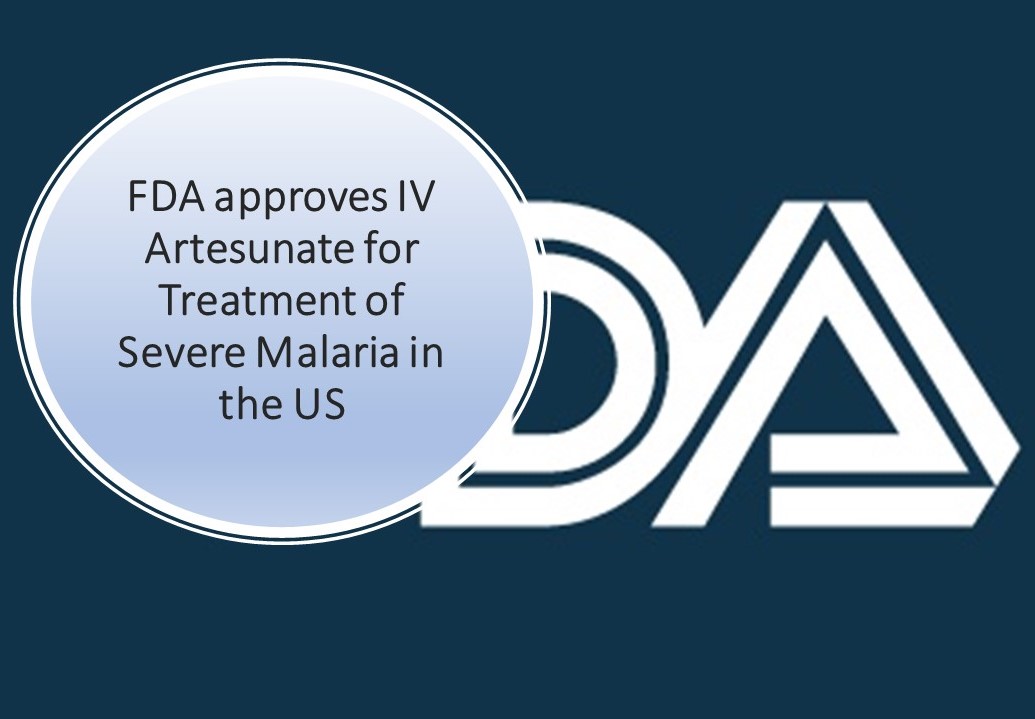[FDA News Release, May 26, 2020] – The U.S. Food and Drug Administration (FDA) has approved artesunate for injection to treat severe malaria in adult and pediatric patients. Treatment of severe malaria with intravenous (IV) artesunate should always be followed by a complete treatment course of an appropriate oral antimalarial regimen.
In Nigeria, the antimalarial medicine recommended for the treatment of severe malaria is injectable (IV/IM) Artesunate. Where this is not readily available, intramuscular artemether or intravenous/ intramuscular quinine can be used as alternatives.
(Nigeria’s National Guidelines for Diagnosis and Treatment of Malaria, 3rd ed. Federal Ministry of Health National Malaria and Vector Control Division, Abuja-Nigeria, May 2015)
Prior to this approval, IV artesunate was only available to patients through the FDA’s Expanded Access program, which allowed the U.S. Centers for Disease Control and Prevention (CDC) to provide IV artesunate to U.S. patients with severe malaria and to patients with uncomplicated malaria who are unable to take oral medications under an investigational new drug (IND) protocol. There has been no FDA-approved drug for treatment of severe malaria in the United States since the marketing of quinine was discontinued by the manufacturer in March 2019.
The safety and efficacy of IV artesunate for the treatment of severe malaria was primarily evaluated in a randomized controlled trial in Asia (Trial 1) and a supportive published randomized controlled trial in Africa (Trial 2).
Trial 1 enrolled 1,461 patients who received either IV artesunate or the comparator drug quinine and included 202 pediatric patients younger than 15 years. Trial 2 included 5,425 randomized pediatric patients younger than 15 years of age with severe malaria who were treated with artesunate or quinine. In both trials, the number of patients treated with artesunate who died in the hospital was significantly lower than the number who died in the control group treated with quinine.
In Trial 1, the most common adverse reactions in patients with malaria treated with IV artesunate were acute renal failure requiring dialysis, hemoglobinuria, and jaundice. The safety profile in Trial 2 was generally similar to Trial 1.
Artesunate should not be used in patients with known serious allergy to artesunate such as anaphylaxis.
Source: FDA News Release, May 6, 2020

